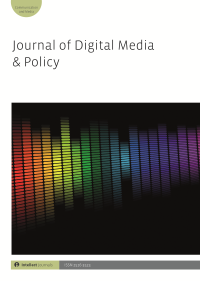
Full text loading...

Campaigns against hate speech related to race, gender groups and sexual orientation have received varying degrees of acknowledgement and recognition in global contexts. However, the same has not been true for caste-hate speech that affects a fifth of the world’s population. This article advocates that global policy-makers should consider caste a protected characteristic related to hate-speech policies. It further calls for recognition and inclusion of caste as a protected characteristic in all international covenants related to human rights and hate speech. It also sets out action plans to mitigate hate speech in everyday conversations that are increasingly mediated by and saturated in digital platforms.

Article metrics loading...

Full text loading...
References


Publication Date:
https://doi.org/10.1386/jdmp_00089_1 Published content will be available immediately after check-out or when it is released in case of a pre-order. Please make sure to be logged in to see all available purchase options.